While most people learn as kids to floss their teeth, wash their faces, and brush their hair, how many people learn from a young age about the importance of healthy sleep habits (referred to as sleep hygiene?)
Just like with our daily hygiene routines, it's important to have a set of habits that help us get a good night's sleep. The good news is that by making simple changes to your daily routine and establishing good sleep hygiene habits, you can improve your sleep quality and get the restful night's sleep you need to feel your best.
What Is Sleep Hygiene?
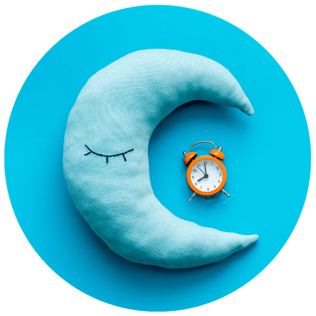 Sleep hygiene refers to a set of science-backed behaviors and practices — both during the day and before bedtime — that promote good sleep. It includes everything from the foods you eat to your activities before bed.
Sleep hygiene refers to a set of science-backed behaviors and practices — both during the day and before bedtime — that promote good sleep. It includes everything from the foods you eat to your activities before bed.
Creating and following a sleep hygiene routine can encourage your body to wind down and prepare for sleep. As a result, you'll be more likely to fall asleep quickly and sleep soundly through the night.
Signs of Poor Sleep Hygiene
Below are some of the signs that may indicate it’s time to improve your sleep hygiene.
1. Struggling To Fall Asleep
Lying in bed for hours, trying to will yourself to drift off, only to end up feeling more exhausted than when you started? If this sounds familiar, you're not alone.
According to the National Sleep Foundation, around 30% of adults report struggling with insomnia. Several things can cause difficulty sleeping, including stress, anxiety, sleep apnea, and poor sleep hygiene.
2. Frequent Trips to the Bathroom
Nocturia, or frequent trips to the bathroom during the night, is a common condition that can have a variety of causes. Sometimes, it may be due to an underlying medical condition, such as sleep apnea or diabetes. Other times, it may be the result of taking certain medications, or it may simply be due to poor sleep hygiene.
If you frequently wake up at night to urinate, it's important to talk to your doctor to determine the cause and find the best treatment options.
3. General Fatigue
Most people experience occasional fatigue. But for some, fatigue is a constant and debilitating problem. There are many possible causes of fatigue, but one often-overlooked cause is poor sleep hygiene.
If you frequently feel tired during the day, taking a closer look at your sleep habits could be the key to solving the problem.
4. Poor Concentration
When you don't get enough sleep, your ability to focus and pay attention suffers. This is especially true if you have a sleep disorder like insomnia. Poor sleep hygiene can lead to decreased concentration even if you're not suffering from a sleep disorder.
Many things can contribute to poor sleep hygiene, including working late into the night, drinking caffeine or alcohol before bed, and using electronic devices in bed.
5. Decreased Libido
Studies have shown a direct link between sleep and libido, with one study finding that men who slept for five hours or less per night were more likely to report problems with sexual function.
Poor sleep can lead to decreased libido in both men and women, along with other problems, such as erectile dysfunction and difficulty climaxing.
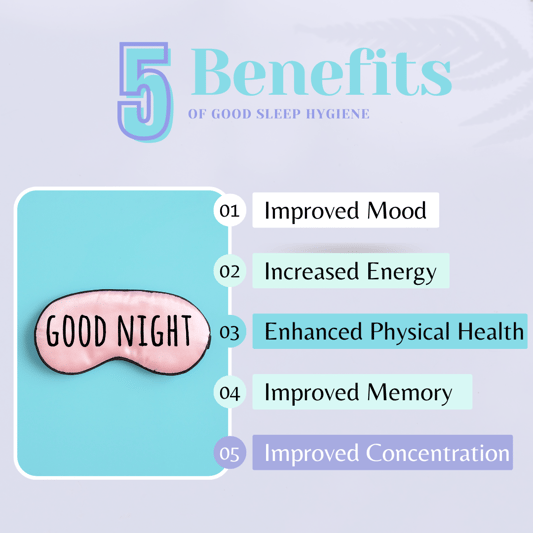 What Are the Benefits of Good Sleep Hygiene?
What Are the Benefits of Good Sleep Hygiene?
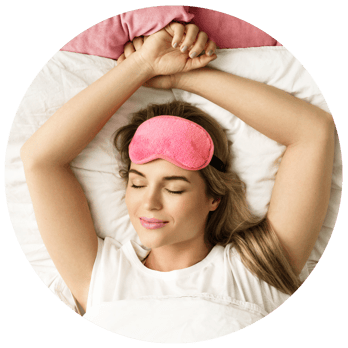 Many people are unaware that there’s a science to practicing good sleep hygiene. When you get deep, restful sleep, you wake up feeling well-rested and ready to start the day. You have more energy to function at your best, you’re not as grumpy or short-tempered, and you’re more relaxed and patient toward the people around you.
Many people are unaware that there’s a science to practicing good sleep hygiene. When you get deep, restful sleep, you wake up feeling well-rested and ready to start the day. You have more energy to function at your best, you’re not as grumpy or short-tempered, and you’re more relaxed and patient toward the people around you.
Research shows that you’re also likely to feel less anxious and more confident after a good night's sleep. That’s because sleep helps to reduce stress hormones in the body and allows your mind to process information more effectively.
Let’s look at the benefits of good sleep hygiene in relation to sleep quality.
1. Improved Mood
You wake up feeling refreshed and rested when you get a good night's sleep. This can lead to an improved mood throughout the day. Getting enough sleep can also help to reduce stress and anxiety levels.
2. Increased Energy Levels
Sleep is essential for the body to recover and prepare for the next day. When you don't get enough sleep, you may feel tired and sluggish during the day. However, when you get a good night's sleep, you'll wake up feeling energetic and ready to start your day.
3. Improved Concentration and Focus
Getting enough sleep is essential for concentration and focus. When well-rested, you can think more clearly and are less likely to make mistakes. You're also more likely to be productive and efficient when you've had a good night's sleep.
4. Enhanced Physical Health
Getting quality sleep has a significant impact on your overall health and well-being. It improves your mood and focus and helps your body maintain a healthy immune system to fight off infection more effectively.
If you don't get enough sleep, you do not feel your best and are more likely to develop obesity, diabetes, high blood pressure, and chronic health problems.
5. Enhanced Memory and Learning
Sleep plays a vital role in learning and memory. When well-rested, you can remember information more effectively and learn new skills more easily. Getting enough sleep can also help to improve your problem-solving abilities.
10 Tips To Improve Sleep Hygiene
So, how to improve your sleep hygiene? Below are ten sleep hygiene tips. 
1. Keep a Regular Sleep Schedule
One of the most important things you can do for good sleep hygiene is to maintain a regular sleep schedule. This means waking up and going to bed at the same time every day, even on weekends. Doing so helps regulate your body’s sleep rhythm, making it easier for you to fall and stay asleep.
2. Create a Relaxing Bedtime Routine
Another critical part of good sleep hygiene is creating a relaxing bedtime routine. This can involve taking a bath, gentle stretching, or reading a book. Doing these activities will help to signal to your body that it's time to wind down and prepare for sleep.
3. Avoid Caffeine and Alcohol Before Bed
Caffeine and alcohol are two substances that can interfere with sleep. Caffeine is a stimulant that can make you feel more awake and alert and make it difficult to fall asleep. Alcohol, on the other hand, may make you feel sleepy at first but can disrupt your sleep later in the night. It’s best to avoid both of these substances in the hours leading up to bedtime.
4. Avoid Working or Using Electronic Devices in Bed
Working or using electronic devices in bed can also interfere with sleep. The light from screens can suppress the production of melatonin, which is the hormone that makes you feel sleepy. Additionally, working or using electronic devices in bed can keep your mind active and make it difficult to fall asleep.
5. Get Up and Move if You Can’t Sleep
If you lie awake in bed, it’s best to get up and move around rather than lie there frustrated. Getting up and moving around will help to release any built-up tension and make it easier for you to fall asleep.
6. Establish a Regular Exercise Routine
Regular exercise can improve sleep quality. Exercise helps to promote deep, restful sleep by reducing stress levels and improving the function of the nervous system. However, it’s best not to exercise too close to bedtime, as this can make it more difficult to fall asleep.
For virtual health, wellness, and fitness classes try Sofia Prime to get unlimited monthly classes and videos on demand.
7. Make Sure Your Sleeping Environment Is Comfortable
Your sleeping environment greatly influences how well you sleep at night. Make sure your bedroom is dark, quiet, and cool enough for comfortable sleeping. Also, use comfortable sheets and pillows that properly support your head and neck.
8. Limit Napping
While a short nap can sometimes help to increase alertness and energy levels, napping for too long can actually have the opposite effect. When you nap for more than 30 minutes, you enter slow-wave sleep. This deep stage of sleep is difficult to wake from and can often leave you feeling groggy and disoriented. As a result, it's best to limit your naps to 30 minutes or less if you want to maintain a good sleep quality at night.
9. Avoid Eating Large Meals at Dinner
One of the worst things you can do before bed is eat a large, heavy meal. Not only may you have difficulty falling asleep, but you're also likely to wake up feeling uncomfortably full. This is because your digestive system needs to work overtime to break down all that food, which can lead to disturbed sleep.
10. Practice Mindfulness and Meditation
Mindfulness is a state of being aware of and present in the moment. This means being aware of your thoughts, feelings, and surroundings without judgment. There are many different ways to practice mindfulness, but one of the most common is meditation.
Meditation can help clear your mind so you can focus on the present moment. Regular mindfulness and meditation practice can help you to relax and fall asleep more easily. It can also help you to wake up feeling rested and refreshed.
Did you know meditation to help you sleep? Read our article "Meditation for Sleep" to help you get the best zzzs.
Find 1:1 meditation sessions with professional instructors, group classes, and more on SofiaHealth.
Sweet Dreams Through Good Sleep Hygiene 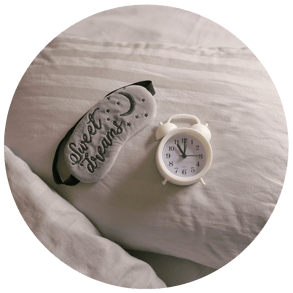 Various practices have been proven to promote better sleep — it just takes a little effort and commitment. By following the tips above and establishing some good sleep hygiene habits, you'll be well on your way to enjoying more restful nights of uninterrupted slumber.
Various practices have been proven to promote better sleep — it just takes a little effort and commitment. By following the tips above and establishing some good sleep hygiene habits, you'll be well on your way to enjoying more restful nights of uninterrupted slumber.
For even more tips to sleep better check out our article "15 Tips for Better Sleep".
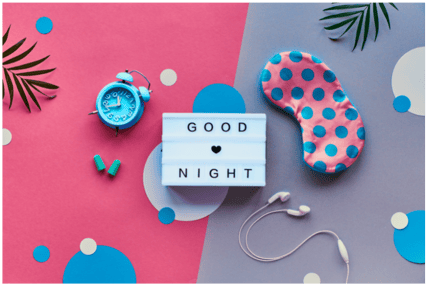


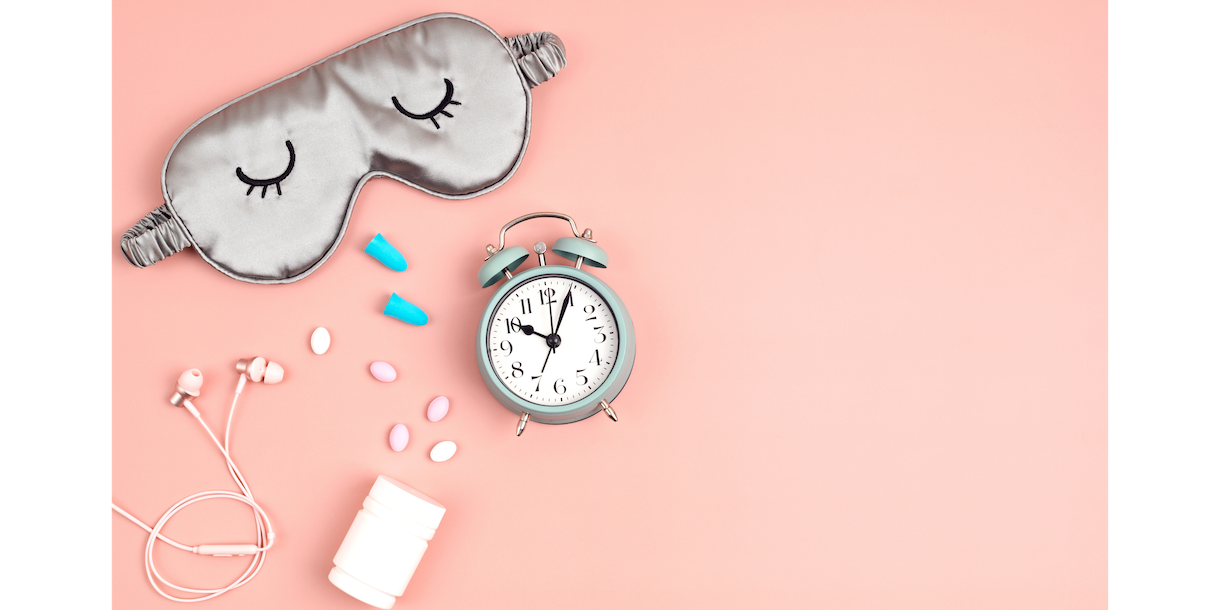
.png)
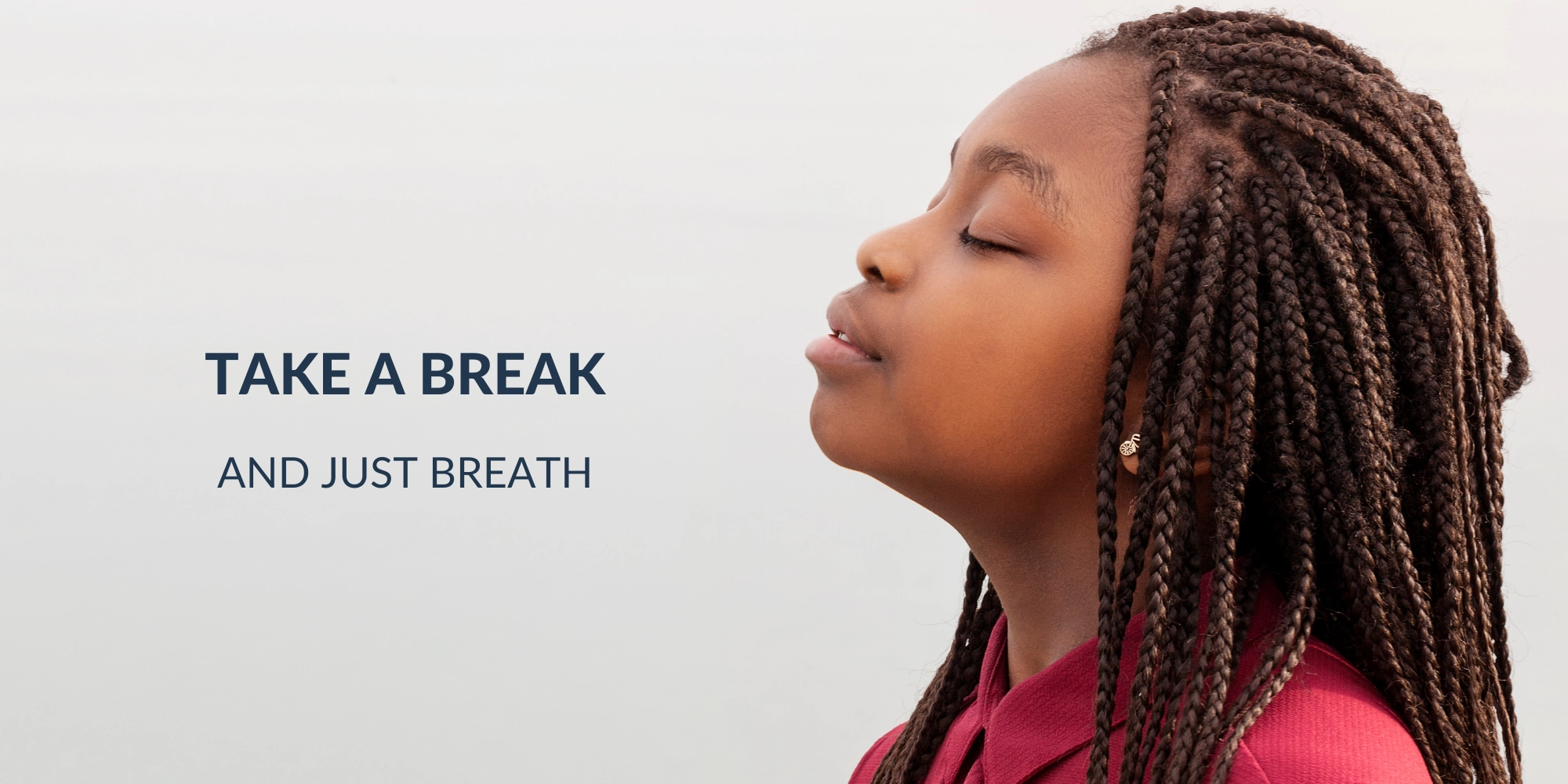
.png)

